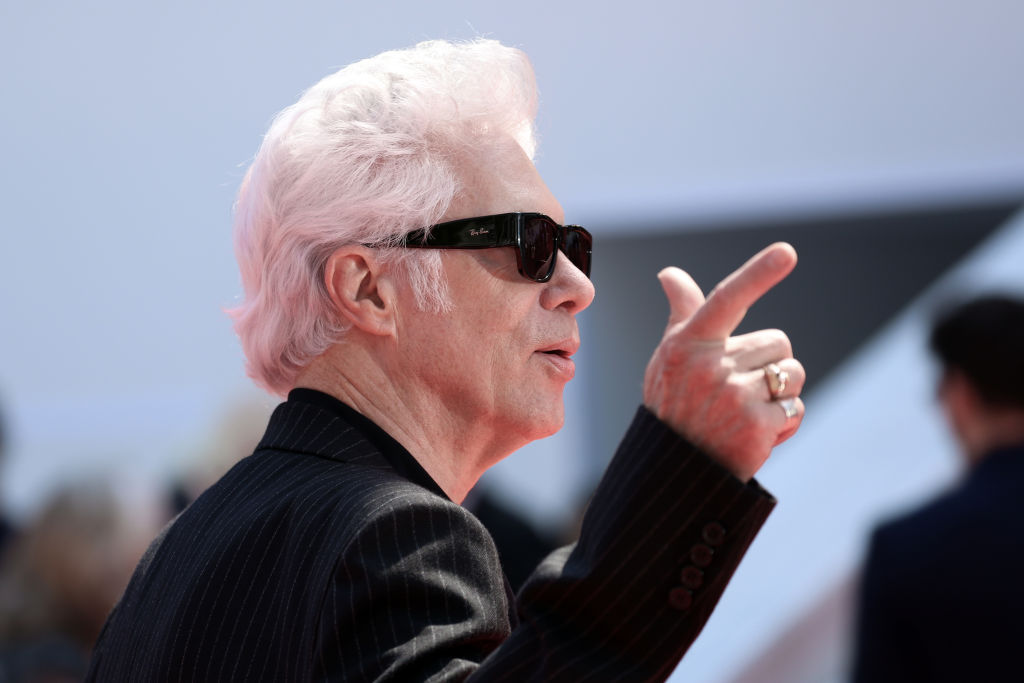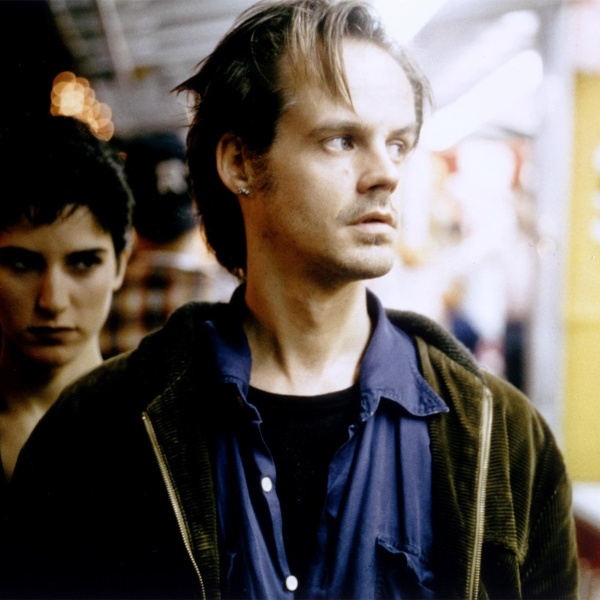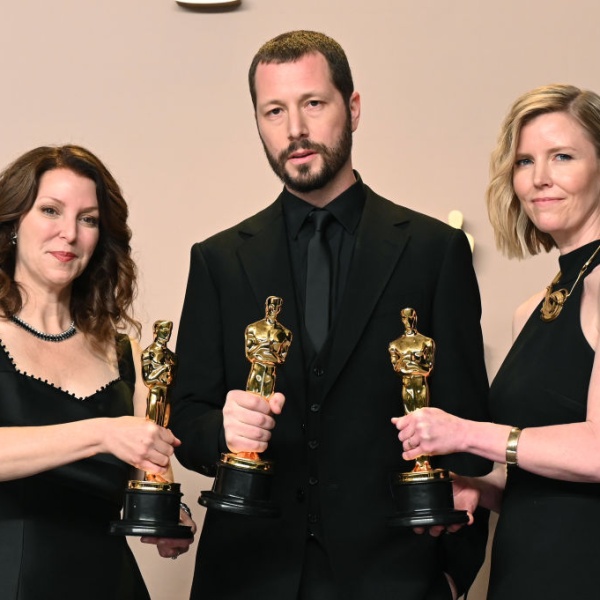Jim Jarmusch hopes his latest project — a soundtrack composed with his SQÜRL bandmate Carter Logan for a new restoration of Man Ray silent films — induces in viewers a “psilocybin-inspired” experience.
The “Only Lovers Left Alive” and “Stranger Than Paradise” filmmaker and musician, along with Logan, spoke exclusively with IndieWire about the screening of four early-1900s black-and-white shorts from Dadaist pioneer Man Ray hitting Cannes Classics tonight: “Return to Reason,” “Emak-Bakia,” “The Starfish,” and “The Mysteries of the Chateau of Dice.”
Together, Jarmusch and Logan improvised an original score, a tripped-out sonic soup of distorted guitars and loopy feedback, now recorded to accompany the films. The quartet of shorts holds up a distorted mirror to human sexuality as Jarmusch and Logan’s eerie music envelops the Freudian dreamscape — and while you might be tempted to drop a tab of acid or mushroom cap or two for the viewing, Jarmusch says that’s not necessary, as the fusion of sound and images here are trying to create that same effect.
“Surrealism was about the altering of senses, of perception, and psychedelic music and the use of psychedelic drugs, there’s a place where they intersect,” Jarmusch told IndieWire over Zoom out of a sunny afternoon in Cannes. “We’re not on mushrooms or using psychedelics to create the music, but there’s something of it that’s important to us of where those two things connect in having an altered perception, rather than one that’s force-fed to you. Man Ray and the Dadaists were very interested in altering those perceptions.”
Jarmusch certainly isn’t against people using drugs to watch the Man Ray films (or at all), but he said, “We’re trying to get to you to that point without the use of them … psilocybin and certain psychoactive drugs have a vibrational thing to them … I don’t use these drugs, but I am familiar with them from previously in my life. It merges well with Man Ray’s disregard for expected narrative or expected perception.”

The soundtrack, a swirl of Moog synthesizer, drums, and distorted guitar, takes you on enough of a hallucinogenic journey, so if you did take drugs watching their Man Ray series, “I think it could induce a really bad trip, honestly, because the films are very strange and the music is dark at times, and you don’t know where you’re going,” Logan said.
“I’m an older guy, and having a clarity of consciousness is trippy enough. Things are strange. The longer I live, the more I appreciate just having a consciousness,” Jarmusch said, whose cult features from “Dead Man” to 2019’s “The Dead Don’t Die” and his 2021 YSL short “French Water” already feel as if made on a drugged-out, hypnotic stupor. “It’s trippy enough just being alive.”
Jarmusch and Logan started SQÜRL in 2008 as a means to score his Tilda Swinton-starring mystery “The Limits of Control.” The band is just one of Jarmusch’s many clever ways of maintaining full creative control over his projects. But along the road of scoring films like Jarmusch’s Tangier-to-Detroit vampire odyssey “Only Lovers Left Alive” and lonely Adam Driver vehicle “Paterson,” Logan said that he and Jarmusch wanted to do a live score that could be manipulated in real-time with a screening. Enter “New Sounds” WNYC radio host John Schaefer, who gave them the platform to play with the Man Ray films.

“We’ve been performing live along with these films on and off for the past eight years or so,” said Logan, who with Jarmusch has taken the Man Ray omnibus up and down each U.S. coast, through the Rust Belt, and in Europe, most recently at the Centre Pompidou. Producers came in and located first-generation nitrate copies of the films, now restored in partnership with the Cineteca di Bologna, La Cinémathèque française, Pompidou, the Library of Congress, and the French CNC.
Until now, SQÜRL was just improvising the music alongside the screenings. “While we’ve now recorded it and made a version that will be shown theatrically and otherwise, we didn’t set out to make just a small piece of music for this one part in the film,” Logan said. “It’s a journey we go on and want to take the audience on, exploring themes throughout these films. They are discrete, but there are also echoes that recur and reference each other throughout the whole program.”
Jarmusch has long been tactful about the use of music in his films, not only as composed by SQÜRL but also from the likes of Tom Waits, John Lurie, and Iggy Pop (who have also acted in his movies). But recently, Jarmusch said his next movie, a project he’s not keen to spill the details on just yet, might have no music at all.
“I probably shouldn’t have said that because we’re now asking me, and I don’t know,” Jarmusch said. “I haven’t shot [the movie] yet, so I’m not totally sure, but my instincts say the sound should be the music. It’s a very quiet film, so maybe little mundane sounds would serve [it] — it’s a film where I don’t want to tell you what to think or feel what is dramatic by the camera or the music.”
Jarmusch said he feels frustrated by soundtracks that try too hard to tell audiences how they’re supposed to react to a given scene. “There are a lot of great films with no score,” he said. “I’ve been thinking about ‘No Country for Old Men’ or ‘The Birds’ by Hitchcock. Some films don’t want the music to tell you anything.”
He said it’s “frustrating” and “annoying” in “commercial Hollywood movies” how much music does the talking. “There are times when I like a film but I can’t keep watching it because the music is driving me fucking nuts. Sweeping, telling you, ‘Oh, the drama!’ Please. I find it insulting.”
Don’t expect SQÜRL to tell you at all how you’re supposed to feel about the fascinatingly weird works of the surrealist Man Ray. Just turn off your mind, relax, and float downstream.
“Return to Reason:Man Ray x Jim Jarmusch” premieres at the 2023 Cannes Film Festival on Tuesday, May 23.


